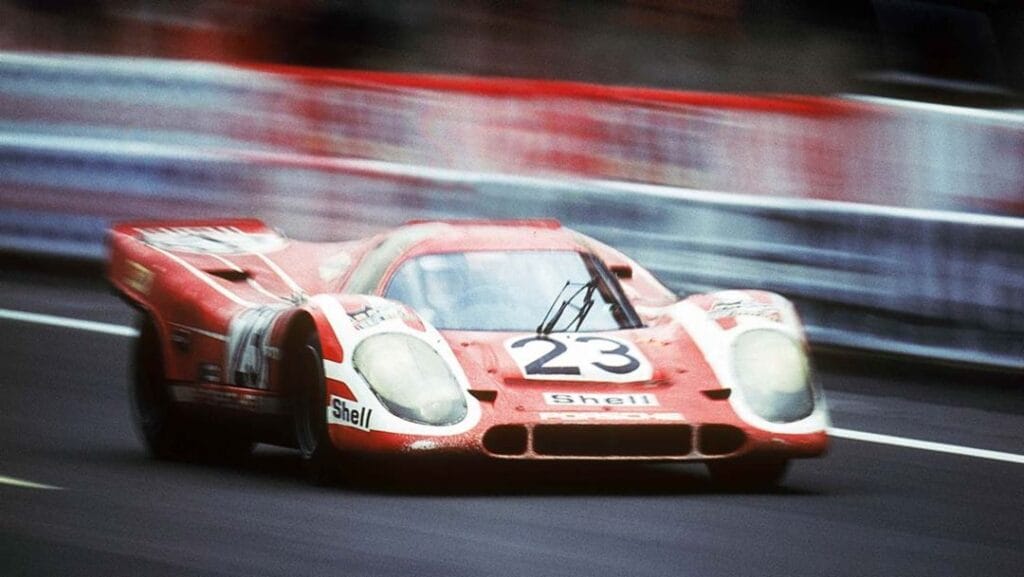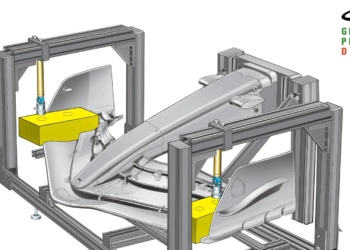The sale of used motorsport vehicles, due to their high performance, specialised components, and in many cases intense usage history, is associated with some obstacles and risks.
Unfortunately, trading motorsport vehicles opens very wide opportunities for fraudsters to commit this crime, often having quite serious financial and safety consequences for the buyer. All kinds of fraud, from falsified maintenance records to hidden accident histories, may be costly and dangerous.
All stakeholders involved-buyers, sellers, and industry professionals-need to exercise caution in ensuring that any given transaction maintains transparency, accuracy, and reliability. This article looks at some of the key strategies on how to avoid fraud in the resale of used motorsport vehicles, thereby empowering buyers to make well-informed decisions.
One essential tool for ensuring transparency in the used motorsport vehicle market is a reliable license plate lookup. A tool like the https://vingurus.com/license-plate-lookup offers quick access to a vehicle’s history, enabling potential buyers to verify ownership, accident history, and maintenance records. This information is crucial in assessing the authenticity of a motorsport vehicle and identifying any discrepancies that might indicate fraudulent activity.
The Vingurus License Plate Lookup service provides the most valuable benefit accruing from informed decisions made by individuals and businesses within the vehicle market. It allows users to get instant reports, which include full vehicle history, by simply submitting a license plate number, containing but not limited to accident records, ownership details, mileage, and title status.
This information is of crucial importance in ascertaining the authenticity and condition of used vehicles, avoiding fraud, and ensuring that the transactions are transparently performed. It was a case of buying, selling, or even searching into the history of a vehicle where Vingurus License Plate Lookup played the role of providing an expedient source to reveal hidden information and engender trust in the used car market.
Understanding the unique risks in the motorsport vehicle market
The risk profile of motorsport vehicle markets is different from the general used car market. Motorsport vehicles are performance-oriented, with high speeds, detailed track conditions, and changes in setups.

All these factors make it much easier for fraud to take place by way of damage to parts being hidden, maintenance histories tampered with, and structural integrity compromised without necessarily showing overt signs.
Motorsport vehicles also tend to have higher values, so fraudsters get this far, wanting to make money from either fake listings or other hidden problems.
Every deal involved with the motorsport market should be treated with an added sense of care on the part of the buyer and seller. Awareness of the potential frauds that may take place in this sector serves as the first step toward protection.
The importance of verifying ownership and accident history
First of all, in fraud prevention, one needs to verify the ownership history of the vehicle in question. A legitimate seller will be able to provide very clear documentation of ownership of the vehicle, much like its accident history.
Such a tool as license plate lookup is indispensable for that purpose, since it will allow him to retrieve official records related to ownership and title status of this or that vehicle, not to mention its accident history. This quick access to verified information ascertains that buyers deal with a valid seller and not some fraudulent entity.
Because motorsport vehicles can incur significant damage in track incidents, accident history is important. Structural damage, for example, may make the vehicle unsafe and performance-compromising, which an unscrupulous seller is not necessarily obliged to declare. In this way, buyers who intend to enjoy a vehicle on determined circuits can estimate the possible resonance of previous incidents on functionality and market value.
Detecting falsified maintenance and service records
Maintenance is so important in motorsport for performance and even safety, so any discrepancies in service history should raise an immediate red flag. Fraudsters may tamper with or forge maintenance histories to demonstrate that a vehicle has excellent upkeep when, in fact, the truth would be it actually has been neglected or poorly repaired.
Real maintenance records are filled with specific details, like dates, specific services provided, and the official service agent authorized to perform the service conditions, thereby making it a bit more difficult to falsify without detection.
A buyer should request full service records and cross-reference those against any records available from a license plate lookup or other reliable database. Also, consulting with a professional mechanic who specializes in motorsport vehicles could indicate inconsistencies in the service record, making sure corners were not cut in maintenance or repairs.
Inspecting for hidden modifications and non-authentic parts
It is normal to make modifications and personal touches in motorsport, but not all modifications are done, keeping in mind quality and safety. Sellers of malicious intent might use substandard or even fake parts themselves, robbing the vehicle of its performance, durability, and safety.
While purchasing, parties should be very cautious with those vehicles that have hidden modifications or non-authentic parts, as such a thing can reduce the reliability of the vehicle and, in some cases, their compliance with motorsport.

Confirmation of the integrity of changes by a mechanic who has much experience with motorsport vehicles is recommended. Whenever possible, get a hold of the original specifications from the manufacturer or builder to at least have a starting point from which to verify their condition and build status, plus identify any unauthorized changes.
Understanding the history behind both building the vehicle and its components is key to knowing if indeed it genuinely meets your performance and safety expectations.
Avoiding VIN and license plate cloning scams
License plate and VIN cloning scams are on the rise in the used car market, with motorsport vehicles not being left behind in the action. In a VIN cloning scam, a fraudster takes a license plate or VIN off a legitimate vehicle and puts it on a stolen or otherwise misrepresented car. This will allow them to sell their fraudulent vehicle with what looks like legitimate documentation and palm the buyer a counterfeit vehicle.
To that effect, every buyer should confirm with a reputable lookup tool VIN details and license plate information to ensure that it corresponds with the records held about the vehicle.
The license plate lookup will guarantee any inconsistencies in the vehicle’s history, such as unmatched locations or mileage that does not correspond to what the seller has indicated. This will save the buyer from acquiring a cloned vehicle; otherwise, such buyers might land in legal trouble and face financial repercussions due to ownership of a stolen or falsely advertised asset.
Using independent vehicle inspections for verification
One way to guard against fraud when buying a used motorsport vehicle would be through independent vehicle inspection. It is usually conducted by a third-party professional who has experience with high-performance vehicles, whereby it can reveal hidden issues the seller may not necessarily speak of.
Some of the aspects the inspector will check include but are not limited to structural integrity, the performance of several key components, quality of any modification work done, among others.

Meanwhile, independent inspections give the buyer, in writing, the proof of the condition of the car at the time of purchase-a factor that could mean much in future resale or insurance issues. Yes, an independent inspection costs extra, but it is well worth the confidence factor it brings with regard to the avoidance of fraud.
Leveraging technology to prevent fraud in motorsport vehicle sales
Today, advanced digital tools are at a buyer’s fingertips, and detecting fraud has never been easier. Access to license plate lookup services, vehicle history database websites, and other such online tools allows buyers to conduct due diligence with speed and efficiency.
With just a couple of clicks, they can be better informed to validate the seller’s claim and confirm the history of the vehicle.
Online forums and groups that talk about motorsport vehicles may also be good sources of information on some good sellers and signals to look out for. Joining these networks also affords the buyer the chance of learning from other people’s experiences regarding the latest fads and scams in the market.
Conclusion
Sales of pre-owned motorsport vehicles do form an extremely exciting yet highly complicated market due to the nature and purpose of such vehicles being high-performance, specialized-use ones, carrying with them unique risks.
Combining diligence, technology, and expert insights, one may attempt to avoid fraud in this area. Verification of ownership and any accident history, inspections for authentic parts and modifications-this is a prerogative that buyers have, and they can make use of the license-plate-lookup tool for accurate information that helps in informed purchasing decisions.
Due to constantly changing technology, fraud prevention has gotten quite robust, and buyers can now seek protection and invest in authentic, high-quality motorsport vehicles. Many of the precautions that one takes to buy a used motorsport vehicle ensure not only your bottom line financially but also your continued performance and safety with that vehicle.







